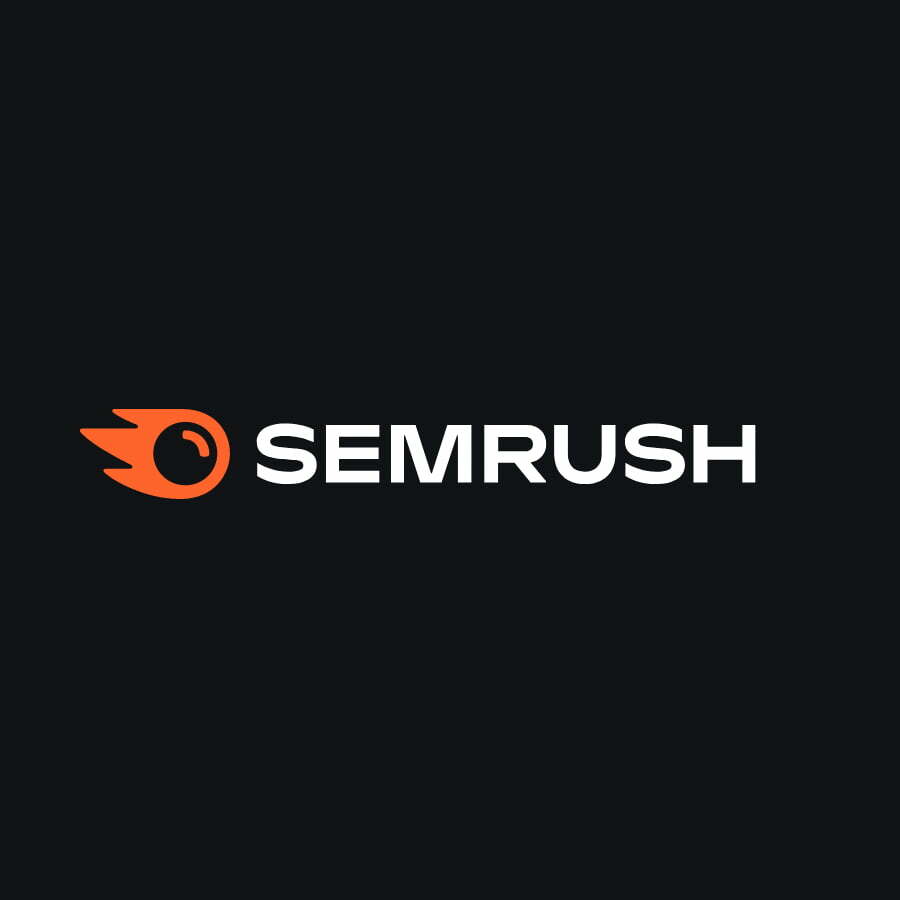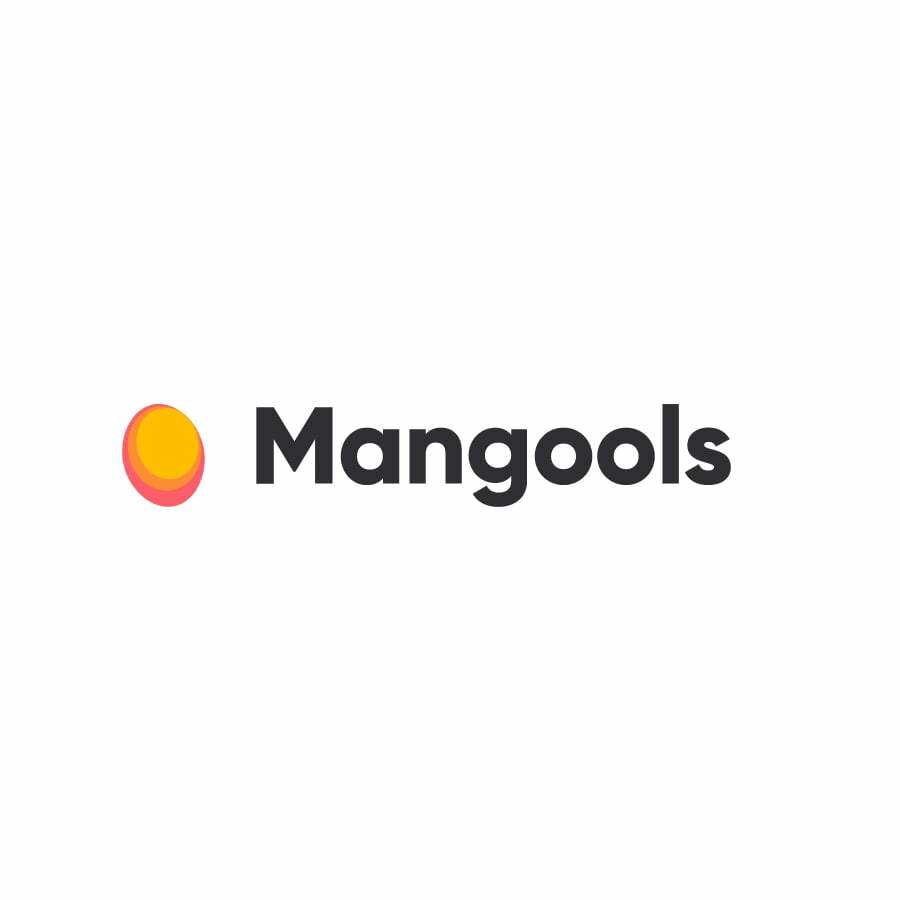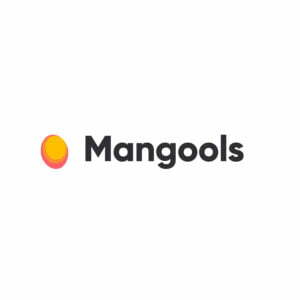


If you want your website to rank highly in search engine results, you've got to do a lot more than just build it and hope that consumers will come. Without search engine optimization (SEO), even the most stunning and authoritative website will get lost in the sea of competition (and likely even sink to the bottom).
Investing in top-notch SEO software is one of the most sure-fire ways to improve your business's online visibility and make it stand out from the crowd. But with so many platforms and tools available, selecting the right one can feel like a seriously daunting task. Even with extensive research, you may still feel uncertain as to which option will provide the most benefits for your particular circumstances.
Many clients are able to narrow down their SEO software choices to a couple of top picks but then get stuck at the finish line, doubting which one will be superior. Semrush and Mangools are often amongst the last programs standing, and, as an SEO expert, I'm frequently asked to weigh in on their relative merits.
That’s why I'm sharing this article today. I'm going to compare and contrast these two quality platforms in a number of key areas and hopefully provide you with enough information to confidently make a final decision on which one will be the best fit for you.
Both programs have their strengths, but they're far from equal...so let's get started!


Yes. Semrush is all about integrations. Here goes:
Semrush offers two API packages—one standard and one specifically for Traffic Analytics.
The standard API includes Analytics API (domain analytics, keyword research) and Projects API (site audit, position tracking, project management). It’s available with the Business level subscription.
The Traffic Analytics API is an add-on that can come with any paid Semrush subscription. It allows you to gather data from the Traffic Analytics Overview report.
Yes. Semrush Academy offers more than 30 online courses covering SEO, PPC, content marketing, social media marketing, and more. Semrush also offers a Knowledge Base with a wealth of tips and information. Customer support is available via the Semrush Help Center, with increased support available at higher subscription levels.
No. Although all of the Mangools tools integrate with each other, they don’t integrate with any third-party platforms.
Yes, Mangools offers API access. By contacting Mangools directly, you can set up private API access.
Yes. In addition to live chat and email support, Mangools offers guides and tutorials for all of its tools.
Accessible and affordable SEO




Many of Semrush's considerable resources are directly (or indirectly) linked to keyword research, and I could probably dedicate several articles the length of this one to mining them in-depth. For the sake of brevity, though, I'll broadly summarize four of Semrush's keyword research tools below.
Semrush's Keyword Overview feature is ideal for quick keyword analysis. If you've already zeroed in on a few select words or want to float an idea or two you've got a hunch about, Keyword Overview will be the perfect starting point. Simply enter your seed keywords in the search bar, and you'll immediately receive a summary of useful metrics—among them, monthly search volume, keyword difficulty, and SERP analysis. You'll also have access to related keywords (including questions) and the top five keyword variations for the word(s) or phrase(s) you've entered.
Ready to move beyond quick and simple? Semrush's Keyword Magic Tool is where the impressive data and research power lie. With over 22 billion words in its keyword database, Semrush blows the rest of the competition out of the water. But it doesn't stop there. Using the Keyword Magic Tool, you can customize, filter, and modify to your heart's content. At its core, this tool allows you to dive deeply and confidently move forward in building successful content around thoroughly vetted keywords. As far as I'm concerned, it's the most all-encompassing and refined keyword tool out there.
Once you've settled on some well-researched keywords, you can use Semrush's Topic Research Tool to help generate topic ideas for content creation. This tool bridges the gap between keyword research and content development and can be highly beneficial in helping you to create suitably optimized content.
Lastly, Semrush's Competitive Research Toolkit provides an opportunity to get a glimpse into the keywords that your competitors are ranking for (and how they're doing it). Enter a competitor's domain in the search box, and you'll gain access to their organic keywords, paid keywords, and much more.

Before there was Mangools, there was KWFinder, a standalone keyword research tool. Today, KWFinder is one of the five core apps that comprise the bigger Mangools platform and remains a strength for the software solution as a whole.
Like Semrush's keyword research tools, KWFinder allows you to uncover data about your own keywords as well as your competitors' keywords. Not surprisingly, though, Mangools' approach to keyword research is more streamlined than Semrush's. To quote the Mangools website, "Keyword analysis is not rocket science. Just go for the keywords with low SEO difficulty and high search volume. We have the exact search volumes and the most accurate keyword difficulty!"
Using KWFinder you can intuitively discover what words your competitors are ranking for, access search volumes with historical data, hone in on local keywords and SERP analysis, and uncover long tail keywords with low SEO difficulty. As you narrow down your keyword list, you can rely on KWFinder's keyword difficulty score to guide you. You can also search for autocomplete keywords (pulled from Google's autocomplete feature) or seek out question-based keywords specifically. For deeper research, Mangools offers advanced filtering options.
While the Mangools keyword research tool is solid and user-friendly, Semrush's keyword research capabilities are far superior. No question.
Not only that, but I’m not a fan of the fact that Mangools caps its keyword results. If you're just researching a few keywords here or there, the caps may not seem like a big deal. But if you have an ambitious content building plan or are creating content for clients, they're a real drag (more on this in the Pricing section below).
In the end, though, it really comes down to what you need. Semrush's gargantuan network of advanced keyword research avenues and unlimited keyword ideas is impressive and, yes, even kind of beautiful. But is it warranted for your situation? Or might you prefer something a little less sophisticated but a lot more accessible? The choice is yours.

With Semrush, checking and analyzing backlinks for any website is simple and straightforward. Just navigate to the Backlink Analytics Tool and enter the domain you wish to investigate.
You'll immediately receive an overview report that will include metrics such as the domain's overall authority score, backlinks, monthly visits, and number of referring domains. If the domain is yours, you can also set up Backlink Audit data to appear in this overview (which will identify any toxic backlinks that may be pointing to your site).
From there, you can begin to dig deeper. The charts in the overview report are a great starting point. They include information such as trend charts, referring domain categories, authority scores, backlink types, and link attributes. Beyond that, use the Backlinks tab to open the Backlinks Report and you'll have access to detailed information about each and every backlink. Page score, trust score, source URL, anchor text, and target URL are revealed and you can sort and filter to hone in on relevant data.
Navigating to the Backlinks Report for competitor domains can help you uncover their best backlinks and reveal potential link building opportunities. Spying on your competition is a legitimate aspect of improving your own SEO and Semrush has the tools to help you do it with finesse.

Known as LinkMiner, Mangools' backlink analysis tool functions on the same premise as Semrush's. Enter a domain into the tool, and you'll immediately receive metrics, including citation flow, trust flow, and the total number of referring domains and backlinks.
You'll also have access to the Backlinks Table, which provides more key backlink metrics alongside the analyzed domain's backlink data. These include some metrics, such as Link Strength (which identifies the potential of each backlink), that are unique to Mangools. As with the Semrush Tool, you can also sort and filter backlinks to bring relevant information into focus. LinkMiner allows you to gather data about your competitors' backlink profiles as well as your own.
Once again, Semrush is the winner here. While the Mangools backlink analysis tool is adequate for gleaning basic backlink data, Semrush's tool provides an in-depth report with granular data that can be used to strategize sophisticated link-building campaigns. Besides integrating with the Google Search Console and identifying toxic backlinks, Semrush also has a backlink database with more than 43 trillion links in it.
Mangools, on the other hand, relies on Majestic's link database, which is smaller. That being said, LinkMiner may hold its own perfectly well for you depending on your goals and needs. Just because it's not at the pinnacle of cutting-edge backlink analytics doesn't mean you won't find value in what it has to offer.

In Semrush, you can track your target keywords for both desktop and mobile rankings. The basic tracking report includes trends such as visibility, estimated traffic, and average position. It also evaluates your site's best-performing keywords and shows you how your keywords rank in the top 3, 10, 20, and 100 positions. In addition, it's possible to access more detailed metrics in the complete tracking report.

The Mangools position tracker, known as SERPWatcher, also tracks your position for desktop and mobile platforms based on specific target keywords (the number of keywords you can track will depend on your subscription level). Like Semrush, Mangools provides a ranking snapshot for each keyword. Metrics include rank change, average and best ranks, search volume, and estimated visits. Beyond this, you can access more in-depth metrics via a number of reports and can also set up alerts based on custom events (such as a gain or loss).
This one's a toss up. I think it's fair to say that both Semrush and Mangools have excellent position tracking features and I don't think you'll be disappointed with either. That being said, Mangools probably has the more accessible overview, if you're looking to interpret the most out of a single glance.
While features and function are the foundation of any SEO platform, accessibility and interface are also critical. After all, if navigating a tool is too time consuming and cumbersome, users won't stick around to find out what gems lie beneath.
Though Semrush's user experience isn't terrible, the complex nature of the software and breadth of features it offers, means that there is a (sometimes steep) learning curve involved in reaching a comfortable level of proficiency. Personally, I find the investment of time worthwhile—kind of like learning to cook a meal from scratch rather than popping a TV dinner in the microwave. But this may not be the case for everyone.
If you're in search of a minimalistic yet intuitive interface that’s super user friendly, Mangools will definitely be your best bet. In this respect, the Mangools team has outshone its competition.

Semrush's plans start at $119.95 per month and range up to $449.95 per month. You can access a free 7-day trial for any subscription tier and will save up to 17% when you subscribe annually. Caps on projects and reports increase with each subscription level and are very generous overall.

Mangools offers a limited free plan and its paid plans range from $29.90 to $89.90 monthly. You can access a free 10-day trial and will save up to 35% with an annual subscription. As I mentioned earlier, I find Mangools caps on things like keyword research to be quite limiting. Many Mangools features have frustratingly low caps and, in my opinion, this is an unfortunate drawback to the software.
It really depends. Mangools is obviously the more affordable option. Its highest subscription level is still less than Semrush's lowest. That being said, Semrush has a lot more to offer and much higher caps. In the end, it really comes down to how much you're willing to spend and what you're hoping to get out of an SEO tool.
In the end, both Semrush and Mangools are formidable SEO tools that bring a lot to the table. While Semrush is an ultra-powerful industry leader with a reputation for satisfying the data cravings of even the most demanding SEO experts, Mangools is a solid and user-friendly tool known for its simple but effective software. It’s affordable and accessible for beginners and professionals alike.
Hopefully, this comparative review has provided some clarity for you as you navigate the universe of digital marketing software. If you have further inquiries or want more information, reach out to me at SerpFocus. My mission is to help you along your SEO journey, and I look forward to connecting!


Leave a Reply
You must be logged in to post a comment.